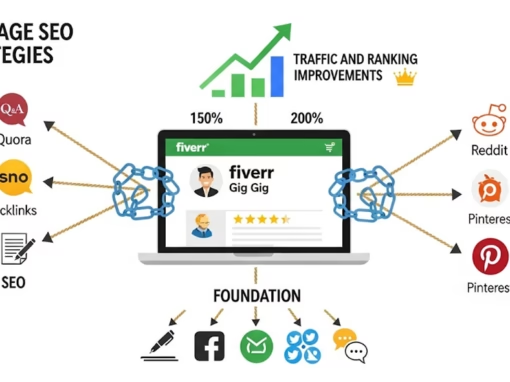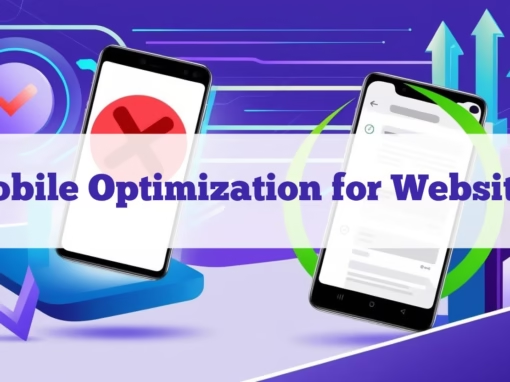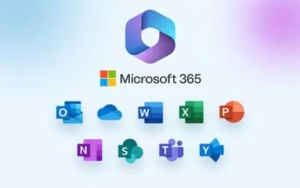In today’s digital-first economy, building a successful business—whether online or offline—starts with one critical element: clarity. Clarity in your vision, your mission, and, most importantly, your business goals and objectives. Yet, many entrepreneurs and small business owners dive headfirst into launching an online venture without laying the strategic groundwork. The result? Missed opportunities, wasted resources, and a business that struggles to gain traction.
In this article, we’ll explore why having clear business goals and objectives is essential for your online business, how they shape your strategy, and why establishing a strong online presence is no longer optional—it’s a necessity. Whether you’re a solopreneur, freelancer, startup founder, or an established business owner transitioning online, this guide will help you build a solid foundation for long-term success.
1. Why You Need Clear Business Goals and Objectives
The answer is simple: Absolutely, yes.
What Are Business Goals and Objectives?
- Business Goals are broad, overarching targets that define what your company aims to achieve. For example, “Increase annual revenue by 30%” or “Become a leading brand in sustainable fashion.”
- Objectives are specific, measurable actions that help you achieve those goals. For instance, “Launch five new eco-friendly products in the next six months” is an objective that supports the broader goal.
Think of goals as your destination and objectives as the roadmap that guides you there.
Why Are They Important?
- Focus and Direction: Without clear goals, you risk spreading yourself too thin. Goals help you prioritize and stay on track.
- Performance Measurement: Objectives allow you to track progress and optimize your efforts. If you can’t measure it, you can’t improve it.
- Team Alignment: If you’re working with a team, goals and objectives ensure everyone is working toward the same outcomes.
- Investor Confidence: Clear goals and a well-defined strategy are essential if you plan to raise capital. Investors want to see a roadmap to success.
Having clarity in your business strategy is like having GPS navigation—you may encounter detours, but you’ll always know where you’re headed.
2. How Clear Goals Can Help Your Online Business
The digital world is fast-paced, competitive, and constantly evolving. Clear goals and objectives act as your anchor, keeping you grounded and focused. Here’s how they can help:
a. Target the Right Audience
With billions of users online, it’s easy to fall into the trap of trying to reach everyone. But with a clear goal—like building an online store for minimalist home decor lovers—you can narrow your focus, optimize your SEO, create relevant content, and market to the right audience.
b. Optimize Marketing Efforts
Without defined goals, digital marketing campaigns can feel like throwing spaghetti at the wall. Clear objectives help you answer key questions:
- What platforms should I focus on?
- What’s my core message?
- What does success look like—leads, conversions, sales, or engagement?
With measurable objectives, you can track your ROI and refine your strategy.
c. Make Smarter Financial Decisions
Online tools, ads, software subscriptions, and freelancers can quickly drain your budget. Clear goals help you allocate resources wisely. For example, if your objective is to increase website traffic by 40%, you might invest in SEO or content marketing instead of a new logo.
d. Build Scalable Systems
When you know where you’re going, you can build systems to support your growth. Automation, delegation, and the right tech stack become easier to implement when they serve a defined objective.
e. Improve Customer Experience
Clear goals help you understand the experience you want to deliver. Whether it’s fast delivery, expert advice, or a seamless checkout process, your objectives will guide your service improvements.
3. Why You Need an Online Presence
Let’s shift gears for a moment. You’ve defined your goals—great! But without a solid online presence, your plans may not come to fruition.
a. Visibility is Everything
Whether you’re a local bakery or a global tech startup, your customers are online. Studies show that 81% of consumers conduct online research before making a purchase. If you’re not visible, you’re invisible.
b. Build Credibility and Trust
A professional website, active social media channels, and genuine customer reviews build trust. In the absence of a physical storefront, your online presence is your digital handshake.
c. Generate Leads and Sales
An online presence opens multiple revenue channels—search engines, social media, email marketing, and more. Combine this with targeted goals like “Double website traffic in Q2” or “Generate 1,000 leads from Instagram,” and you have a powerful growth engine.
d. Control the Narrative
People are talking about brands online. Having your own platforms (website, blog, social media) allows you to control your brand’s message, handle feedback, and position yourself as a thought leader in your niche.
e. Compete with the Big Players
You don’t need a million-dollar budget to stand out online. With clear goals, smart content, and consistent branding, small businesses can outperform giants in niche markets.
4. Aligning Goals with Your Business Model
Your business model should support your goals, and vice versa. Here’s how:
Example: Freelance Graphic Designer
- Goal: Earn $5,000/month consistently
- Objectives:
- Secure three retainer clients paying $1,500/month
- Launch a portfolio website by April
- Generate 20 qualified leads/month from LinkedIn
Every task—whether it’s writing posts, networking, or improving your design skills—should align with your goal.
Example: E-commerce Business
- Goal: Reach $100,000 in annual revenue
- Objectives:
- Optimize product pages for SEO by Q2
- Run Facebook ad campaigns targeting mothers aged 25-40
- Set up an abandoned cart email sequence to recover lost sales
When goals and operations are aligned, your business runs more efficiently.
5. How to Set SMART Business Goals
A proven method for effective goal-setting is the SMART framework. Your goals should be:
- Specific: Clearly define what you want to accomplish.
- Measurable: Attach numbers and metrics to your goal.
- Achievable: Keep it realistic based on your current situation.
- Relevant: Align it with your broader business vision.
- Time-bound: Set a deadline to create urgency.
Example:
- ❌ Vague goal: “I want more traffic on my website.”
- ✅ SMART goal: “Increase monthly website traffic from 3,000 to 5,000 unique visitors by July 2025 through content marketing and SEO.”
6. Common Mistakes in Setting Business Goals
Even with the best intentions, it’s easy to set goals that do more harm than good. Avoid these common pitfalls:
- Setting Too Many Goals: Too many goals can scatter your focus. Prioritize 2-3 key goals per quarter.
- Being Unrealistic: Ambition is great, but impossible targets lead to burnout. Start with achievable benchmarks and grow from there.
- Ignoring Data: Don’t guess—use analytics. Track your progress regularly and adjust your strategy based on real numbers.
- Not Writing Them Down: A goal that isn’t documented is just a wish. Write them down and review them often.
- Failing to Revisit: Your business is evolving, and so should your goals. Revisit and revise them quarterly to stay relevant.
7. Tools to Help You Stay on Track
Here are some practical tools to help you set, track, and achieve your business goals:
- Google Analytics / GA4: For tracking website traffic, behavior, and conversions.
- Trello / ClickUp / Asana: Project management tools to break goals into actionable tasks.
- Notion / Evernote: For planning, journaling, and idea capturing.
- Hootsuite / Buffer: For social media scheduling and performance tracking.
- Mailchimp / ConvertKit: Email marketing platforms to build and nurture your audience.
Remember: Tools are only useful when used in service of a clear strategy.
8. Bonus: Online Goal Examples for Inspiration
Need inspiration? Here are some goal ideas tailored for different online business types:
For Bloggers
- Publish three high-quality blog posts/month.
- Reach 10,000 monthly visitors by the end of the year.
- Launch a monetized email newsletter.
Coaches/Consultants
- Host one free webinar per month.
- Convert 20% of leads into paying clients.
- Launch an online course in six months.
Product-Based Businesses
- Reach $10,000 in monthly sales within 12 months.
- Reduce return rates from 15% to under 5%.
- Increase repeat customers by 30% this year.
Service Providers
- Create a client onboarding system.
- Improve website conversion rates by 15%.
- Ask for reviews from 90% of completed clients.
Final Thoughts
Starting and growing an online business is an exciting journey—but without clear goals and objectives, you’re likely to spin your wheels. Defining your destination helps you build strategies that are focused, efficient, and aligned with your vision.
Your goals are the foundation, your objectives are the blueprint, and your online presence is the bridge. With these elements in place, you’re well on your way to achieving long-term success in the digital world.













0 Comments